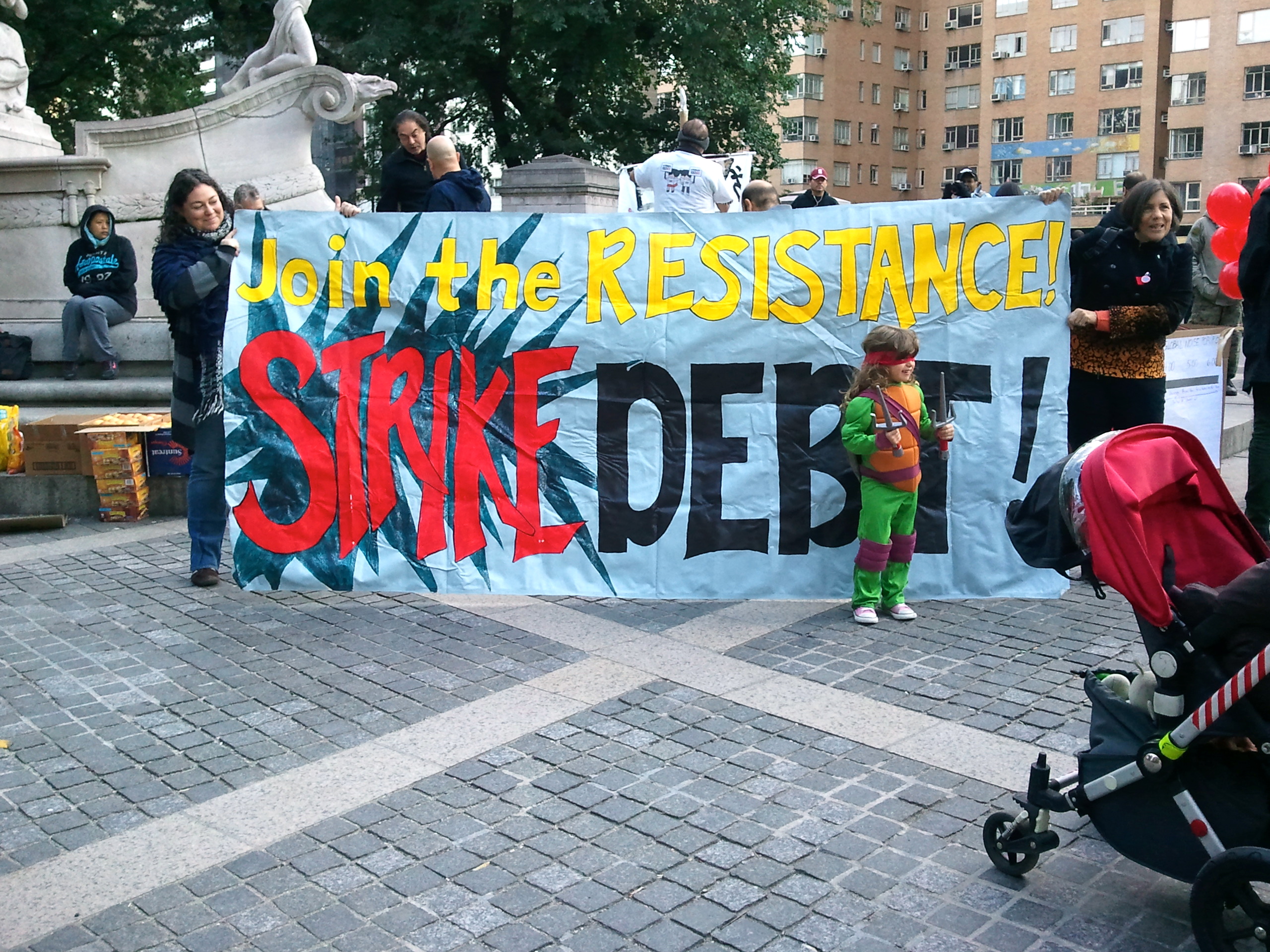
Nearly 300 people gathered at the entrance of Central Park near Columbus Circle on Saturday for a series of panels and teach-ins as part of the Occupy Town Square movement. The crowd, however, didn’t only meet to discuss their gripes with capitalism and economic inequality – many were anticipating the commencement of GlobalNoise, a march meant to display solidarity with a number of various causes and protest movements around the world.
The march followed the perimeter of Central Park, down 5th and 6th Avenues and past Rockefeller Center, before finally convening at Times Square. Protesters stopped to mic-check in front of several notable buildings, such as the home of Goldman-Sachs CEO Lloyd Blankfein, the Trump Tower, and the Fox News building. Protesters clashed with police on the steps of the Plaza Hotel, though no arrests were reported.
“The focus of the protest is intentionally left open to be filled by local organizers and participants,” states the GlobalNoise website. Protesters involved in Occupy Wall Street, Take Back the Land, Strike Debt and the Free University, among others, took part in the march. Though several organizations and movements were present, the collective focus of the night seemed to follow a refusal of the debt system in the United States.
“Debt is a new colonialism, and resistance is a new abolition,” Strike Debt member Suzanne Collado said prior to the march. Collado, along with Christopher Brown and several other members of Strike Debt, were present before the march, handing out “The Debt Resistors’ Operations Manual” and holding up intricately painted banners.
“As of April 25 this year, student loan debt in the USA has hit $1 trillion,” Brown said. “The average debt of the graduating college student is $27,000, and with the job market and salaries today, [it] will probably never be paid off. We need to end [that].”
Also present was the casserole march, or cacerolazo, which involves protesters banging pots and pans as they march. The tactic has spread from its Spanish roots all over the world, most recently to protests in Quebec, London, and now New York.
“For decades or longer, progressive and radical movements have been global, in which activists in one region draw inspiration from the protests in another [region],” said New School professor and historical studies department chair Jeremy Varon, when asked of the effectiveness of the casserole march in the United States. “The very fact that people in the United States have taken to banging pots in an election year shows how shut out, and even desperate, so many people feel.”
While reasons for activism varied amongst the crowd’s members, those present expressed their solidarity with other activist movements across the globe.
“The [debt] resistance here, scarcity in Greece, and tuition hikes in Quebec all have a similar thread, a similar basis to their problems,” said Screen Printing Guild member David Yap, who has been printing patches and shirts for the Occupy movement since its inception at Zuccotti Park. “[These movements] aren’t disparate; we’re fighting against the same issues of capitalism all over the world.”
Saturday’s turnout, which reached hundreds, was still resoundingly smaller than the first meetings of the Occupy movement in Zuccotti Park last September, which were reported to have had tens of thousands in attendance.
“Every movement contends with [differences of motive among] participants,” Varon said. “Occupy has receded to the margins of mainstream political discourse. Time will tell if it can reemerge as a ‘movement of movements,’ for which establishing a basic unity of purpose is likely a requirement.”







I know this web site presents quality dependent content and other data, is there any other web page which offers these information in quality?
Very descriptive post, I liked that a lot. Will there be a part 2?
Thanks for any other informative web site. Where else may I am getting that
kind of information written in such a perfect method? I’ve a challenge that I’m just now operating on, and I have been at the look out for such info.
I’m not positive where you’re getting your
info, but good topic. I must spend a while learning more or understanding more.
Thank you for magnificent info I used to be on the
lookout for this info for my mission.